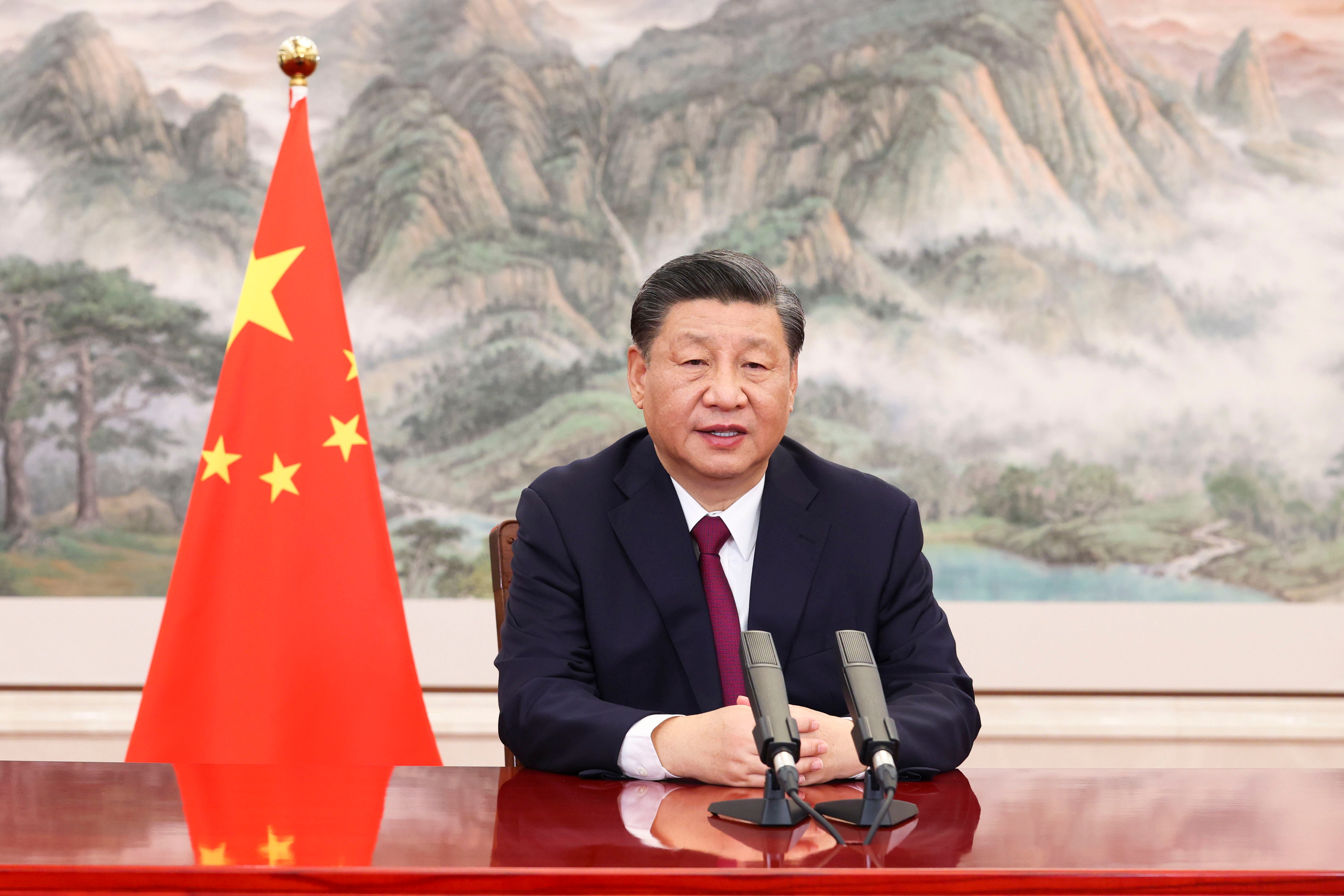China's Xi urges dispute resolution, opposes sanctions
Chinese leader Xi Jinping says his government supports talks to resolve international disputes, but opposes the use of sanctions

Your support helps us to tell the story
From reproductive rights to climate change to Big Tech, The Independent is on the ground when the story is developing. Whether it's investigating the financials of Elon Musk's pro-Trump PAC or producing our latest documentary, 'The A Word', which shines a light on the American women fighting for reproductive rights, we know how important it is to parse out the facts from the messaging.
At such a critical moment in US history, we need reporters on the ground. Your donation allows us to keep sending journalists to speak to both sides of the story.
The Independent is trusted by Americans across the entire political spectrum. And unlike many other quality news outlets, we choose not to lock Americans out of our reporting and analysis with paywalls. We believe quality journalism should be available to everyone, paid for by those who can afford it.
Your support makes all the difference.Chinese leader Xi Jinping on Thursday said his government supports talks to resolve international disputes, but opposes the use of sanctions.
Xi’s comments in a televised address to an international forum in the southern island province of Hainan marked China’s latest attempt to describe an approach to Russia’s bloody invasion of Ukraine.
Beijing has backed Moscow, refusing to call the conflict an invasion and saying Russia was provoked by NATO’s expansion.
Despite that, the official Xinhua News Agency quoted Xi as saying that China remains “committed to respecting the sovereignty and territorial integrity of all countries, uphold non-interference in internal affairs, and respect the independent choices of development paths and social systems made by people in different countries.”
“We stay committed to peacefully resolving differences and disputes between countries through dialogue and consultation, support all efforts conducive to the peaceful settlement of crises, reject double standards, and oppose the wanton use of unilateral sanctions and long-arm jurisdiction," Xinhua quoted Xi as saying.
China has abstained or voted with Russia on recent proposals brought before the United Nations, and China's state-controlled media has amplified Russian disinformation about Ukraine staging attacks and producing biological weapons with U.S. cooperation.
Xi met with Putin in Beijing less than a month before Russia launched its Feb. 24 invasion, with the two sides issuing a joint statement affirming their “no limits" relationship.
China has maintained its support for Moscow despite evidence of war crimes committed by Russian troops and says it maintains normal economic ties between the countries despite the imposition of economic sanctions.
China is also believed to be studying the Ukraine crisis for how it might later affect policy toward Taiwan, the self-governing island democracy it threatens to invade to bring it under its own control. Taiwan and China split during a civil war in 1949, but China claims the island as its own territory.
U.S. Defense Secretary Lloyd Austin on Wednesday spoke with his Chinese counterpart for the first time since becoming Pentagon chief more than a year ago, breaking a communications impasse that American officials saw as increasingly dangerous.
Austin, who calls China the U.S. military’s leading long-term challenge but has been forced to focus heavily on Russia this year, requested the telephone conversation with Gen. Wei Fenghe after months of failed efforts to speak with Gen. Xu Qiliang, the highest ranking uniformed officer in the Communist Party military structure.